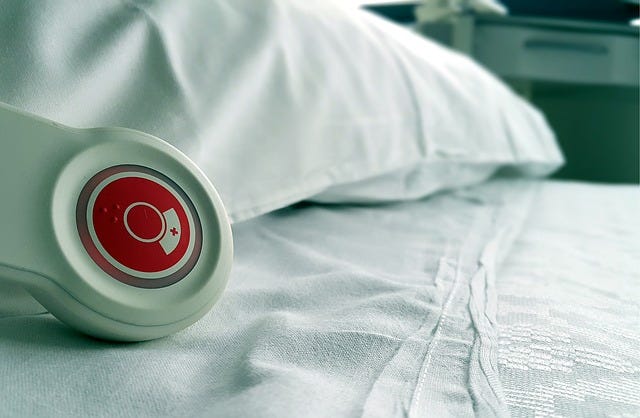Hospital-at-Home Must Include Support and Help for Family Caregivers
Care can’t happen without us. We need help and support, too.
On Thursday, several hospital systems announced they had formed The Advanced Care at Home Coalition.
The coalition’s press release announcing its formation says:
The Advanced Care at Home Coalition brings together likeminded stakeholders to advocate for the continuation of current hospital-level care-at-home flexibilities during and beyond the COVID-19 public health emergency, and for the creation of an advanced-care-at-home delivery model at the Center for Medicare & Medicaid Innovation.
Founding members of the coalition include Mayo Clinic, Medically Home and Kaiser Permanente, joined today by additional members Adventist Health, ChristianaCare, Geisinger Health, Integris, Johns Hopkins Medicine, Michigan Medicine (University of Michigan), Novant Health, ProMedica, Sharp Rees-Stealy Medical Group, UNC Health, and UnityPoint Health.
"Offering acute-level, hospital-quality care at home allows physicians and care teams to treat a whole person to meet their individualized care goals, while also helping address some of the social determinants of health," says Stephen Parodi, MD, executive vice president of The Permanente Federation, part of Kaiser Permanente. "This coalition supports a policy foundation for this more equitable future of health care."
"This model will finally allow underserved patients safe and cost-effective access to care that is long overdue," added Rami Karjian, CEO of Medically Home. "We look forward to working with Congress to expand access to this safe and effective model of care delivery."
I’ve been following news about the hospital-at-home model since earlier this year. Each time I read about the hospital-at-home model, I look for any reference to supporting those family members who also will be providing care. It’s rare that coverage of this model includes any reference to the fact that family caregivers will be part of the care team.
For instance, if my father avoids an in-patient stay by staying home to receive care through a hospital-at-home model, how will I receive training to provide care after the care team leaves us after its visit? Who will support me for providing the constant care he may need? Who will give me a break so I can work, take a walk or go for a swim?
I can’t help but wonder: Are family caregivers the free solution for the current staffing shortage in hospitals?
Last spring, I created a petition that calls for better use of funding to increase support and help for family caregivers. The petition includes this call for support:
Any Hospital at Home program, which transfers care to the low-cost model of home, must include training and support for the family caregiver, reimbursement for home modifications, and Family Emergency Planning sessions so that family caregivers have plans in place to manage the next crisis. These family caregivers also must receive a respite stipend to use for a well-deserved break.
In the past, systems made funding and policy decisions based on what’s best for the system. The voice of family caregivers, the primary care provider in the health care system, is overlooked. The system saves money with models like hospital-at-home. The cost to us, though, can be devastating.
Let’s be sure we receive what we need.
Please sign our petition and join our Caregiving MasterMind group on Wednesday, October 20, at 1 p.m. ET (Noon CT, 10 a.m. PT). We’ll continue the conversation about how we can ensure the hospital-at-home model includes help and support for us, too.
(Image by Silvia Tormo from Pixabay)
Updates
Deadline to nominate a caregiving book, advocate or TikTok channel for The Caring Awards is November 15.
Use our caregiving advocacy tool kit to contact your representatives to increase awareness of the need for caregiving support and help.
Certified Caregiving Specialist Scholarships: If you care for a family member and would like the flexibility of your own business, our CCS training may be the right fit. Deadline to apply is 10/30.
Tell us about your days as a family caregiver or former family caregiver.




